Backstage Tour: on the road with Karnivool
Trucks, planes, toasties, a killer team and, of course, plenty of guitars: there's never a dull moment when you're a roadie out on tour.
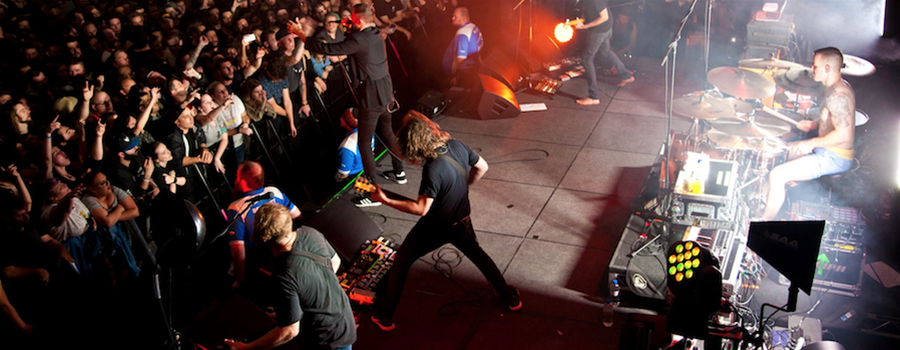
The difference between perception and reality is one of the big hairy questions that haunts the periphery of the human experience. Unsurprisingly, musicians and other writers have done their best to try and cut through the myths surrounding the band on the road and present the unvarnished truth. From Henry Rollins' gritty and misanthropic memoir Get In The Van to Cameron Crowe’s iconic film Almost Famous, pop‐culture has plenty to offer on this topic.
Having spent seven years touring as an artist myself across around 30 countries, I have plenty of opinions on the subject. Recently, I completed my first big tour as one of the guitar techs for the rock powerhouse Karnivool on their Praxis tour. Here are some thoughts from the back‐of‐house regarding routine, gear, and the realities behind a run of great shows by one of the country’s best bands.
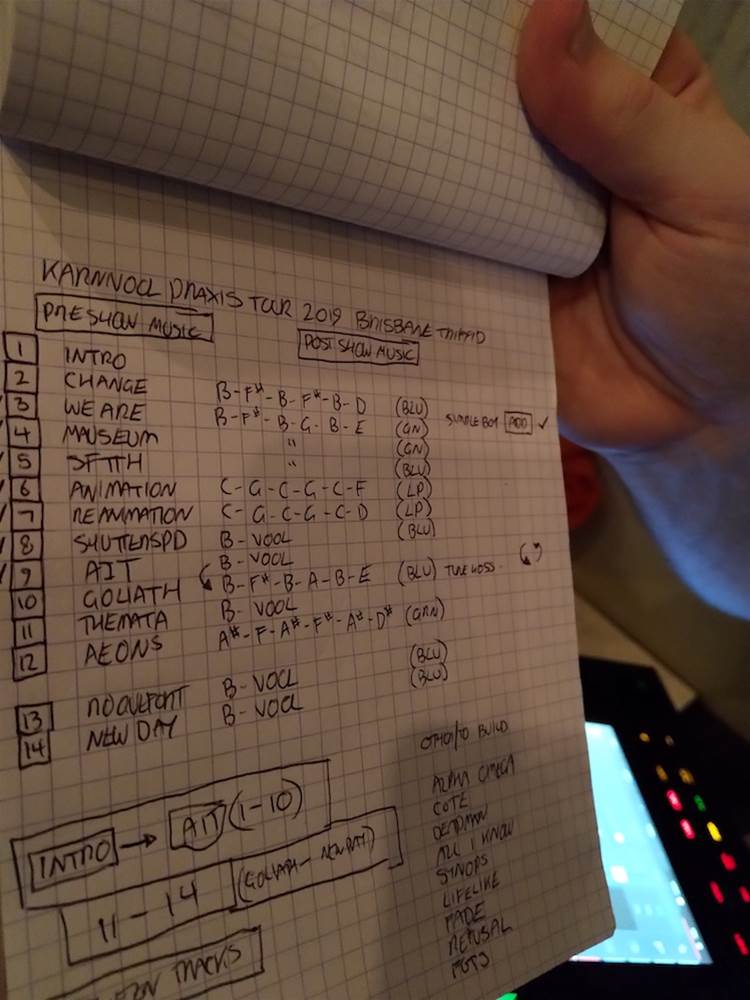
Expect the unexpected
A typical day for me would involve some kind of travel between cities, loading gear out of trucks, setting up and testing the bass rig and one of the guitar rigs, restringing and tuning guitars, watching the show (mainly to see if anything goes wrong, and to fix whatever inevitably does), and then packing everything down and back into the truck before heading to the hotel for far too little sleep.
A predictable day on tour is a good day. You want everything to go to plan. Ideally speaking, the crew (and later the band) will arrive at the venue on time and in good health. The venue will be open, the venue staff will be ready to work, the stage will be ready to set up, and all the technical specs that were advanced and agreed on by both sides will be there.
Because so much goes into a successful show, something is, unfortunately, bound to go awry. As one of the band’s guitarists, Drew Goddard, told me, “Murphy has a law, and as far as I’m concerned, he’s always around like a spare dick at a wedding. Recklessly drunk and, given a chance, will shit in your proverbial punchbowl.”
Murphy will throw a show off with anything from a broken string to a dicky so‐called ‘power conditioner’ that blew up two tube amps within ten minutes (yes, this actually happened on the penultimate show of the tour). A major, unexpected disaster during showtime is a tech’s worst nightmare. There’s a frantic, despairing feeling that accompanies these moments, as several people hastily work to try and fix a problem that (in that moment) has no clear cause.
When stress levels are rising and the cortisol is flooding your system, it’s good to remember a rule laid down by the band’s sound engineer and production manager, Luke: “one team, one dream.” It’s only through working together and leaving the past in the past that a band and crew makes it through a long jag unscathed.
Get The Pick Newsletter
All the latest guitar news, interviews, lessons, reviews, deals and more, direct to your inbox!
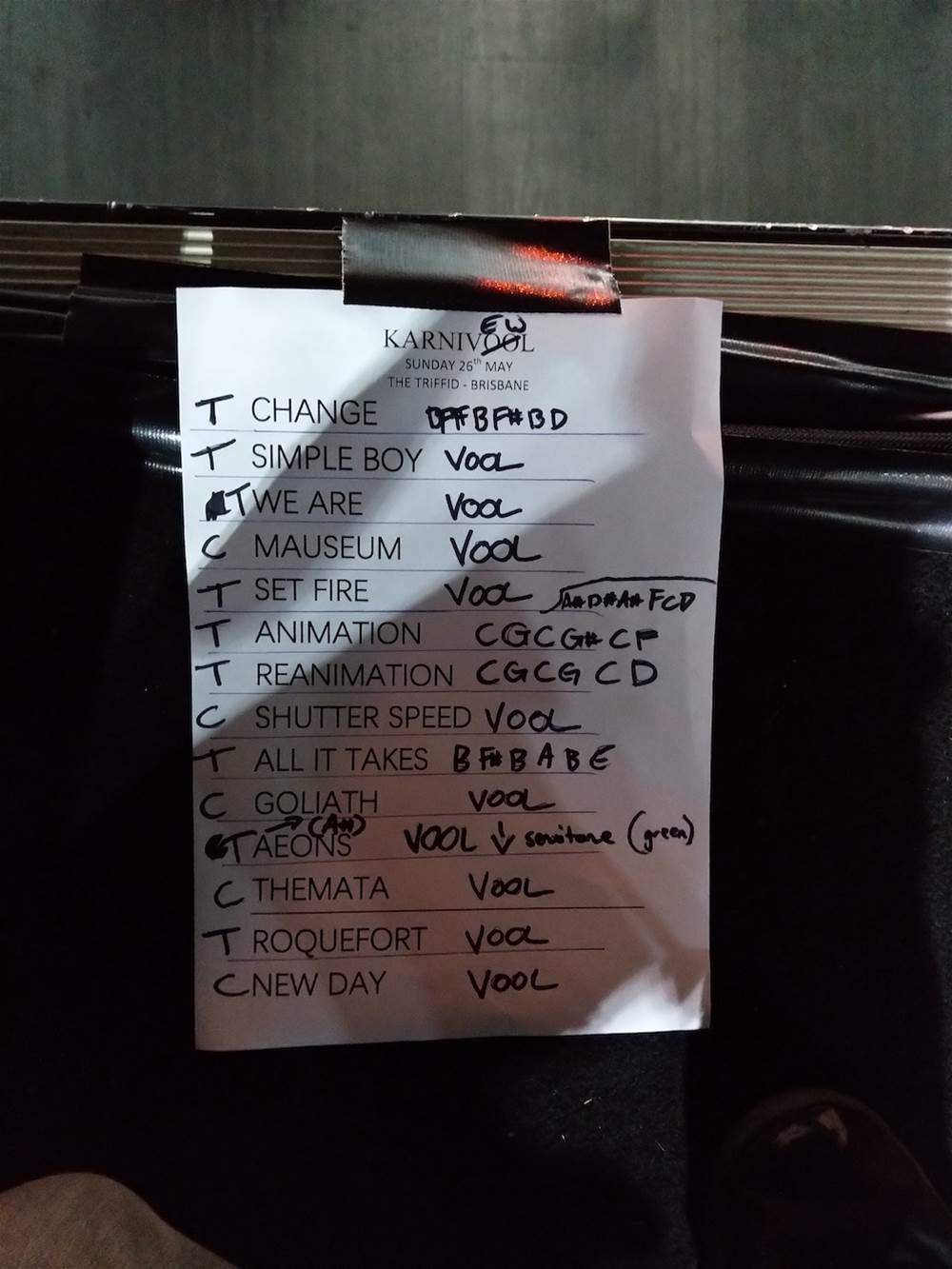
On one particularly bad morning in Melbourne, all of us in the crew were feeling like death after a thin night’s sleep, a horrible check‐in process and no time for breakfast. In the five minutes before we were due to board our flight, the band’s bassist, Jon Stockman, emerged from the Virgin lounge with a sweaty stack of toasties he’d made for us to eat. It’s moments like this that stick in the mind and make you realise you’re working for the good guys.
Hybrid Theory
Anyone who is familiar with Karnivool’s music knows that they don’t do normal. The same goes for their guitar rigs. Mark Hosking’s is probably the most straightforward – some analog pedals (including a Boss DD‐500 and an OC‐3), then into an Axe‐Fx II for further effects and amp simulation. Finally, it all hits the power amp of a JCM800 stack to move some air.
Drew Goddard’s guitar setup is based around the valve distortion of a Peavey 5150. He never switches channels, relying on the guitar’s pots for cleanup. Further to this, he employs two cabs in order to accentuate different aspects of the preamp.
“Playing through the Orange cab [a PP412] and the Marshall cab was super enjoyable,” he says. “It really maximises the potential of the amp when it’s driven hard. Thick, creamy low mids through the Orange which complements the 1960A Marshall cab.”
Goddard used to use a Boss GT3 back in the day, but, like Hosking, now relies on the Axe‐Fx II for post‐preamp effects. He still retains analog delays for a preamp‐pushing sound. From my vantage point, I also noticed a couple of boutique fuzz pedals on his board. It’s cool tonal stuff like this that helps the band have a slightly different heavy sound. It reminds my ears of the rich, dense sounds of ‘90s alternative rock more than the scooped and precise approach of other modern prog acts.
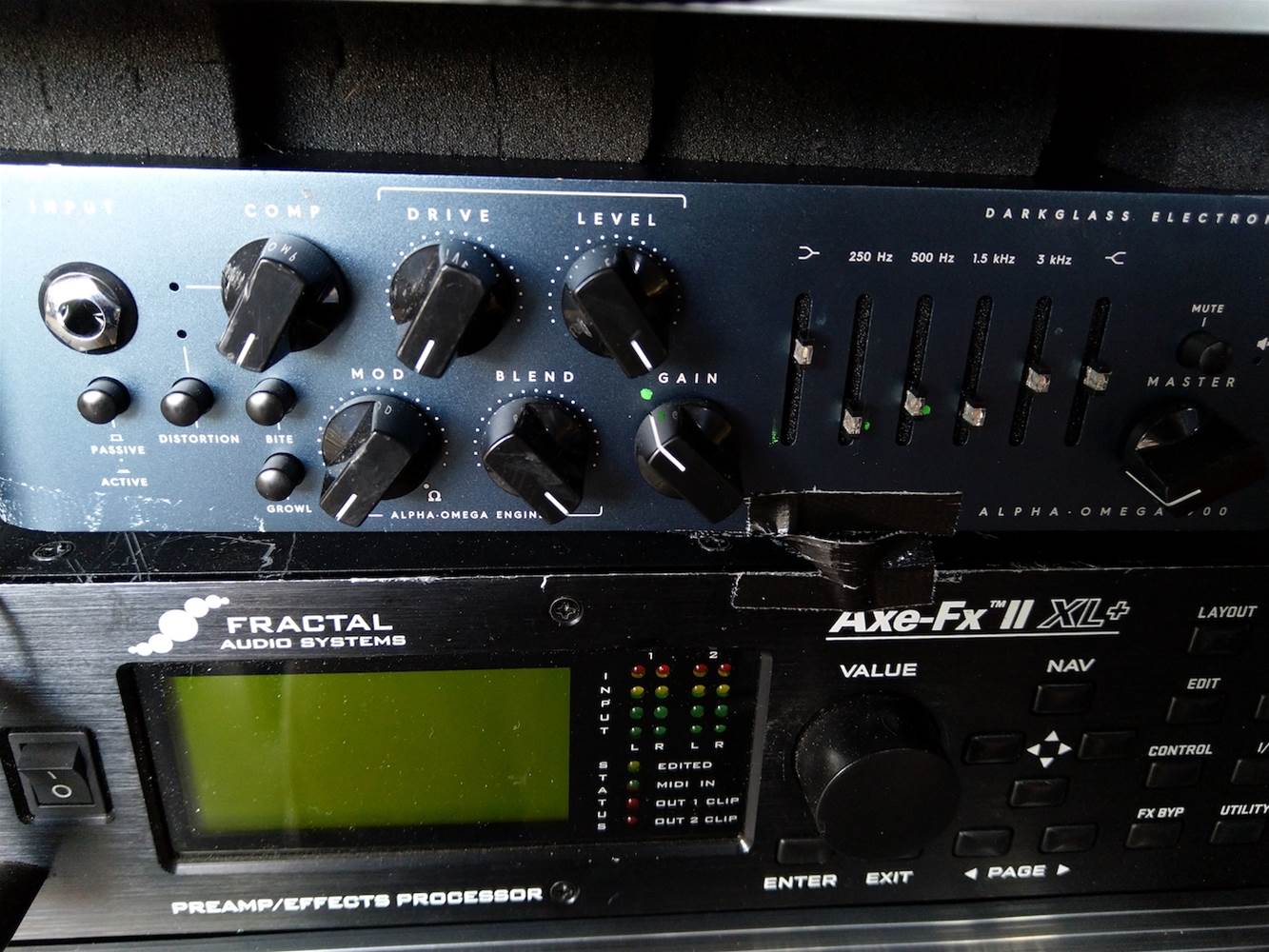
Stockman’s bass rig is known for producing a variety of crushing distortion tones. He’s so adept at this that the incredibly hip Finnish electronics company Darkglass has released signature amps and pedals inspired by his sound.
“I’m also really happy with the distortion sounds I’ve got for this new pedalboard,” he says. “It’s much more distinct and closer to the album sounds for songs like ‘Goliath’, ‘Simple Boy’, ‘Nachash’, and ‘Set Fire To The Hive’. This is thanks to the inclusion of the Darkglass X7 alongside the Darkglass Alpha Omegas I’m using, and the Darkglass Luminosity to really add a swollen mass to the Goliath front end. The cab sims on the Alpha Omega 900 head are really going to help take that even further.”
In addition to gain pedals, the bass rig also boasts a programmable EQ to balance between the sound of his Warwick Thumb and Corvette basses. Finally, he’s integrated two Eventide H9s and a boutique switching system called the GigRig2 in order to extract a mind‐boggling array of sounds out of his playing. Delays, loops, tempo‐synced tremolo; you name it, he’s probably already doing it.
Shut up and tune yer geetar
As a guitar tech, you naturally spend a fair bit of time tuning and restringing guitars. Doing this for Karnivool also provides an opportunity to learn a new trick or two. They’re up there with Soundgarden or Sonic Youth when it comes to exploring alternate tunings, many of which are surprisingly easy to adapt to your own style.
The classic ‘Vool tuning is BF#BGBE, providing riff‐ready low‐end that interacts really colourfully with the standardly‐tuned top three strings. Goddard mentioned to me that one of his favourites is C#ADFAE. It’s heard on their slow‐burning epic “Alpha Omega” and the minor sixth interval on the bottom two strings brings out a deep melancholy.
Part of the purpose of the Praxis tour was to roadtest some new material in front of fans. For two of these songs, Goddard used A#D#A#FCD and GG (octave apart) CGBbD, while Hosking played in CGCGCF and CGCGCD. The way these two complement each other while playing instruments in vastly different registers is impressive to see. And while it does mean bringing a lot of guitars out on the road, readers of a guitar magazine would surely see that as a good thing.
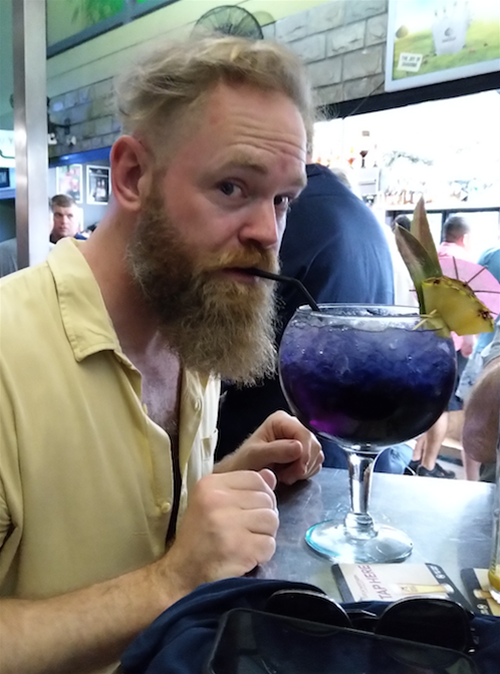
Challenge Accepted
One of the things that every tour has to account for is keeping morale and physical health high. While being on stage looks glamorous to the punter, the flipside is a lot of tedious time in vans, airports and hotels, missing sleep and missing home.
It’s crucial to keep the mental demons at bay, particularly if you feel like a show hasn’t been 100%. Stockman has a great strategy for keeping perspective: “Reserve judgment for how the gig was for how your soundguy feels it went.” He’s referring to their long‐standing FOH engineer Luke Willott. “Cause most of the woeful things you considered to have ruined the gig didn’t even translate to the people out the front. No exceptions to this rule!”
Tour can also become a bit of a hothouse environment. You’re almost never alone, and constantly being in close contact with the same people can be fatiguing. Imagine going to work during the day and then also sleeping in a hotel with your office colleagues. Sometimes you just really need an escape. Goddard finds it really helpful to jump on the phone and talk. “Call the better half regularly if you’re anything like me. Stay grounded and stay fit.”
“Among the most sought-after of all rhythm guitars… a power and projection unsurpassed by any other archtop”: Stromberg has made a long-awaited comeback, and we got our hands on its new Master 400 – a holy grail archtop with a price to match
“It combines unique aesthetics with modern playability and impressive tone, creating a Firebird unlike any I’ve had the pleasure of playing before”: Gibson Firebird Platypus review










